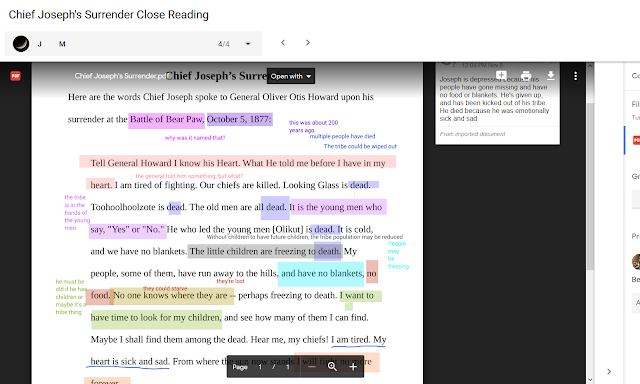"My friend Douglass!": A few notes on the great Abraham Lincoln
Abraham Lincoln believed our Founding Fathers' declaration that, "all men are created equal," and he always hated slavery. He discussed privately the right to vote for Americans of African descent who fought in the Civil War; he talked about it openly in his last public address: “It is unsatisfactory to some that the elective franchise is not given to the colored man. I would myself prefer that it were now conferred on the very intelligent, and on those who serve our cause as soldiers.”
(One member of the crowd that night was John Wilkes Booth, who knew exactly what Lincoln meant: “That means [...] citizenship! Now, by God, I’ll put him through. That is the last speech he will ever make.”)
We know also that though Lincoln may have doubted initially the innate ability of the enslaved (as did Thomas Jefferson), it was due to the debased conditions under which they had suffered for centuries (as Jefferson had surmised). The great abolitionist and orator Frederick Douglass is one man who helped reshape Lincoln's opinion as he got to know him over the course of the Civil War.
President Lincoln invited Mr. Douglass to visit after having delivered his Second Inaugural Address. Police at the White House door manhandled Frederick Douglass, refused to let him in, and took him to a hallway used as an exit. Douglass refused to leave until his saw the president, and when he saw a friend passing by, he asked him to relay a message to Lincoln that he was being detained at the door. Not long after that, Douglass was escorted into the East Room.
"'Amid a scene of elegance such as in this country I had never before witnessed,' Douglass wrote. 'Like a mountain pine high above all others, Mr. Lincoln stood, in his grand simplicity, and homelike beauty. Recognizing me, even before I reached him, he exclaimed, so that all around could hear him, "Here comes my friend Douglass."'"This episode comes as no surprise to anyone familiar with the president. Frederick Douglass observed that of all the "great men" he had met in America, Abraham Lincoln was the only one who never made an issue out of the distinction (hue) between them. And in his July 10, 1858 speech against Democrat judge Stephen Douglas, Lincoln declared:
"Lincoln took his hand and said, according to Douglass, 'I am glad to see you. I saw you in the crowd today, listening to my inaugural address. How did you like it?' 'I said, "Mr. Lincoln, I must not detain you with my poor opinion, when there are thousands waiting to shake hands with you."'
"'No, no,' he said, 'you must stop a little, Douglass; there is no man in the country whose opinion I value more than yours. I want to know what you think of it?'
"Douglass replied, 'Mr. Lincoln, that was a sacred effort.'"
"when [men] look through that old Declaration of Independence they find that those old men say that 'We hold these truths to be self-evident, that all men are created equal,' and then they feel that [...] they have a right to claim it as though they were blood of the blood, and flesh of the flesh of the men who wrote that Declaration, and so they are.George Washington and Abraham Lincoln. Two sides of the same coin. The Founder and Savior of the Republic. May their love of Liberty and Equality under law be rekindled throughout this land.
"That is the electric cord in that Declaration that links the hearts of patriotic and liberty-loving men together, that will link those patriotic hearts as long as the love of freedom exists in the minds of men throughout the world.
"[...] let us discard all this quibbling about [...] this race and that race and the other race being inferior, and therefore they must be placed in an inferior position. [...] Let us discard all these things, and unite as one people throughout this land, until we shall once more stand up declaring that all men are created equal."


Comments